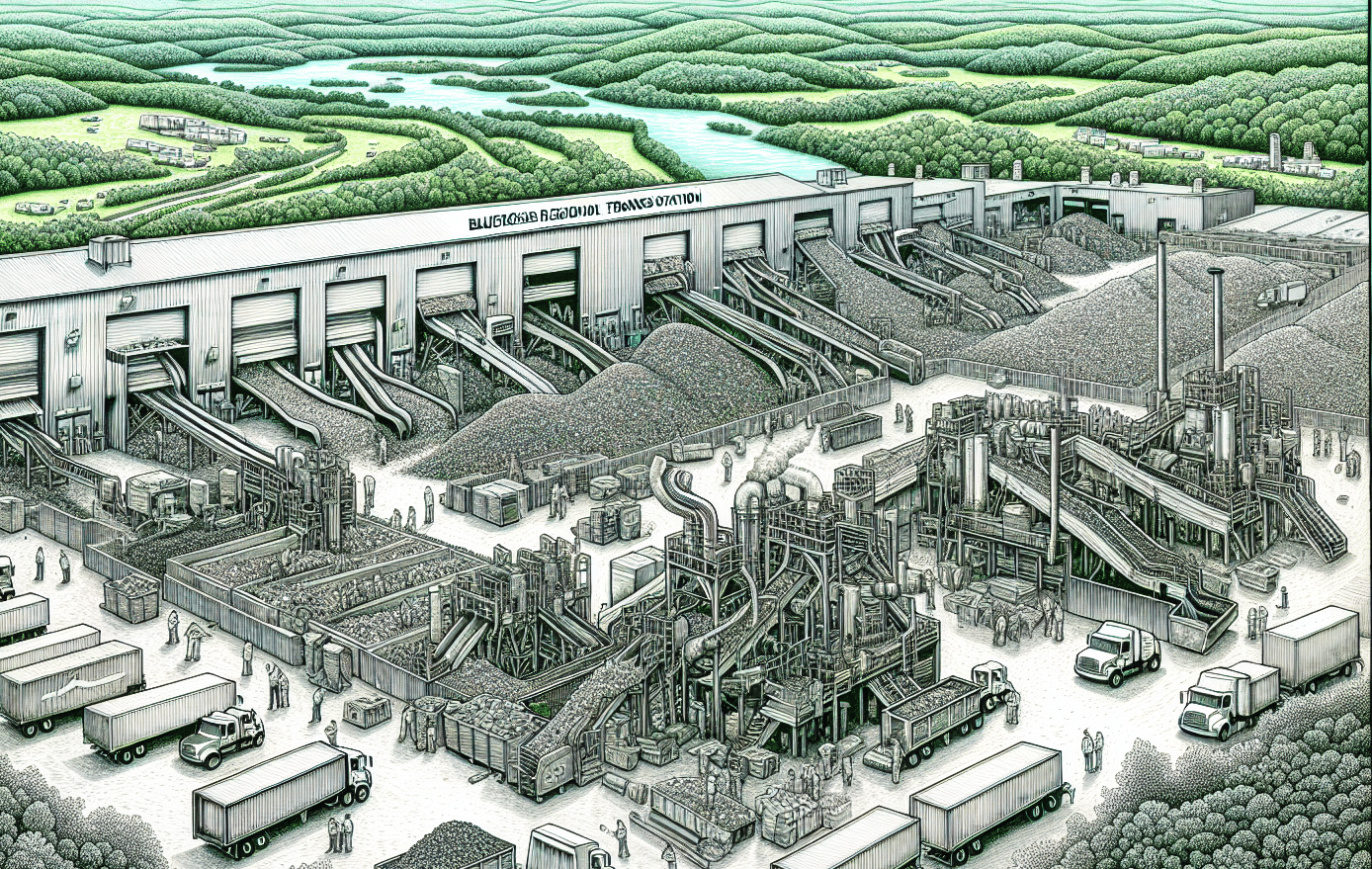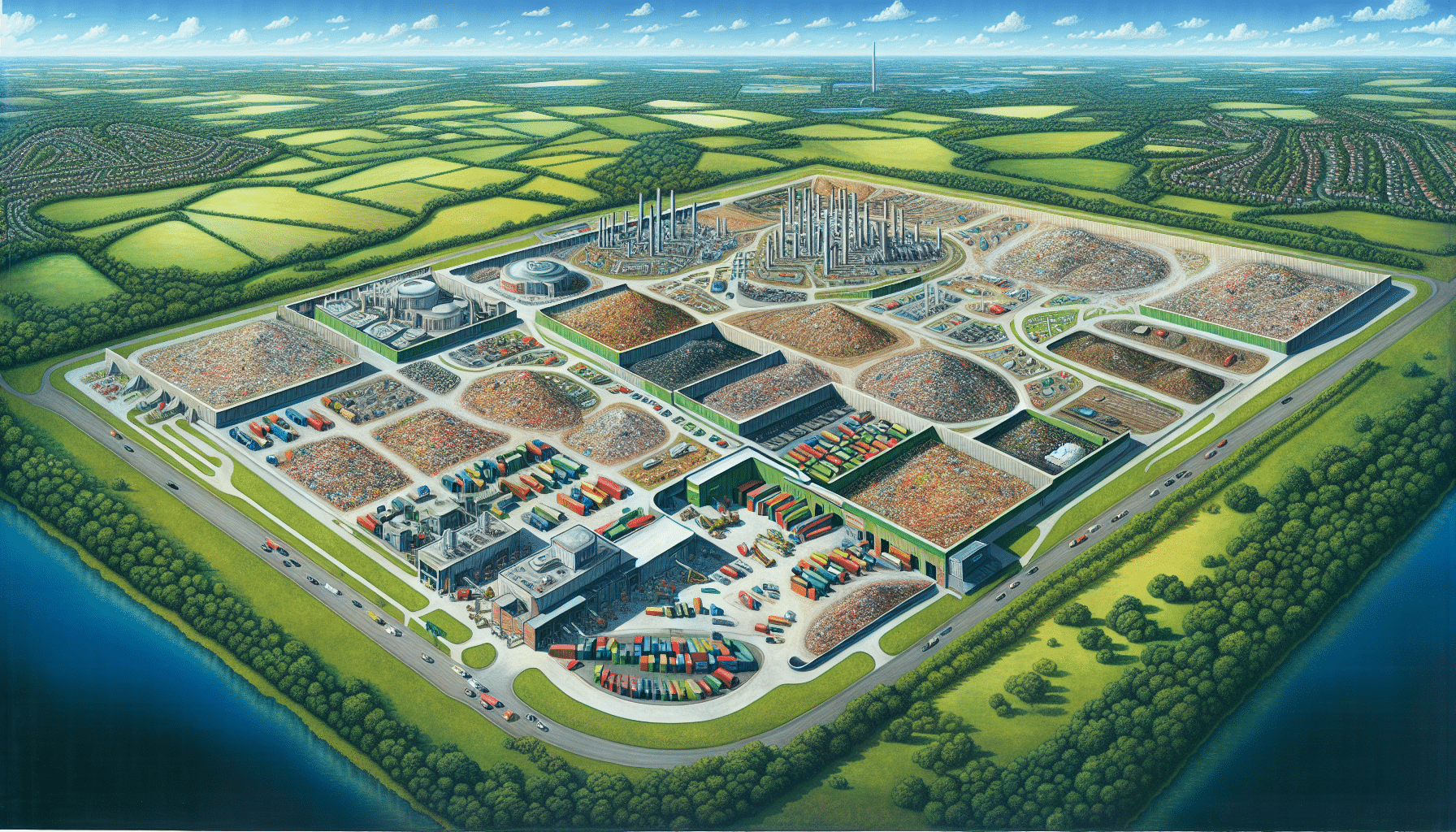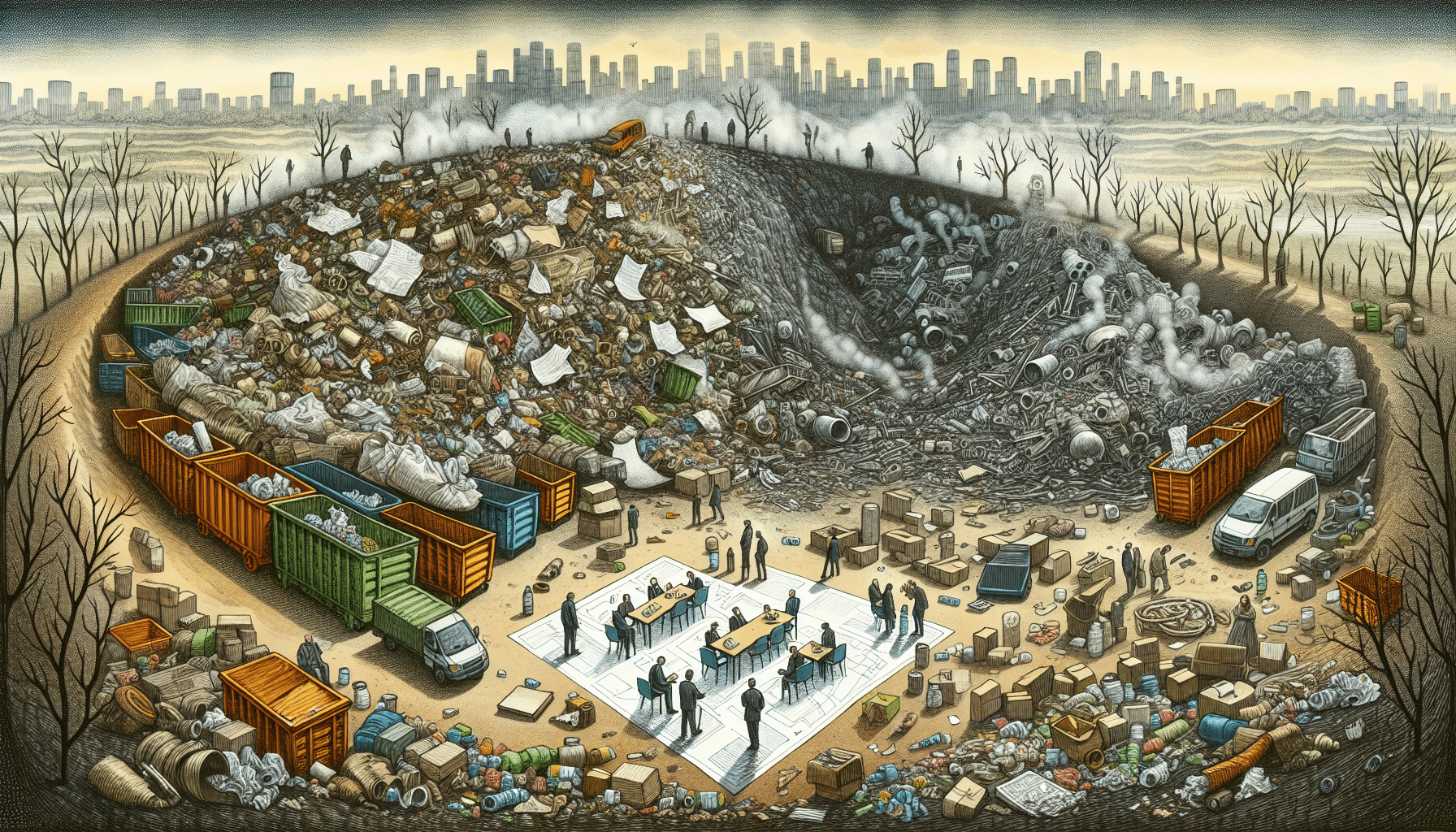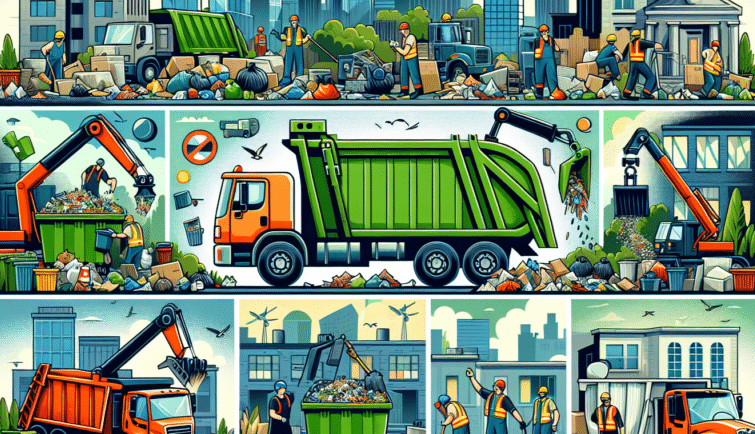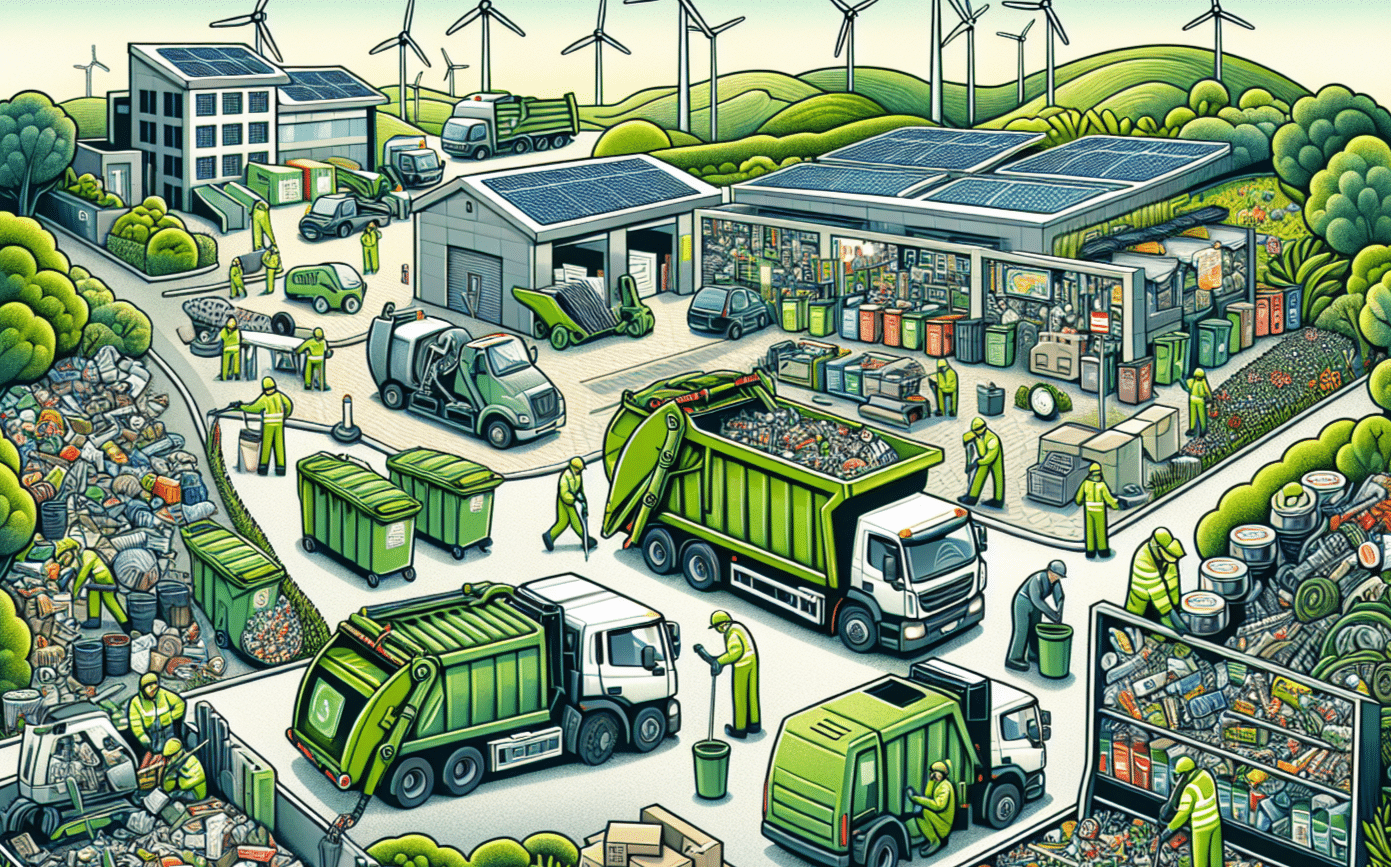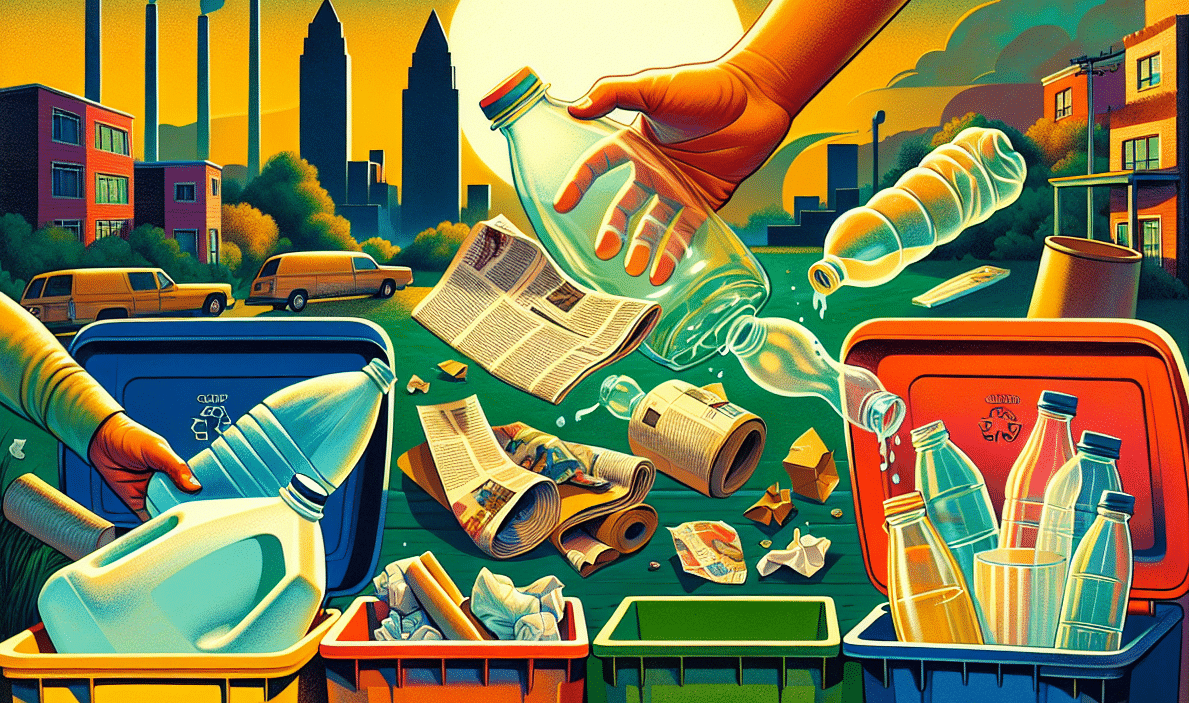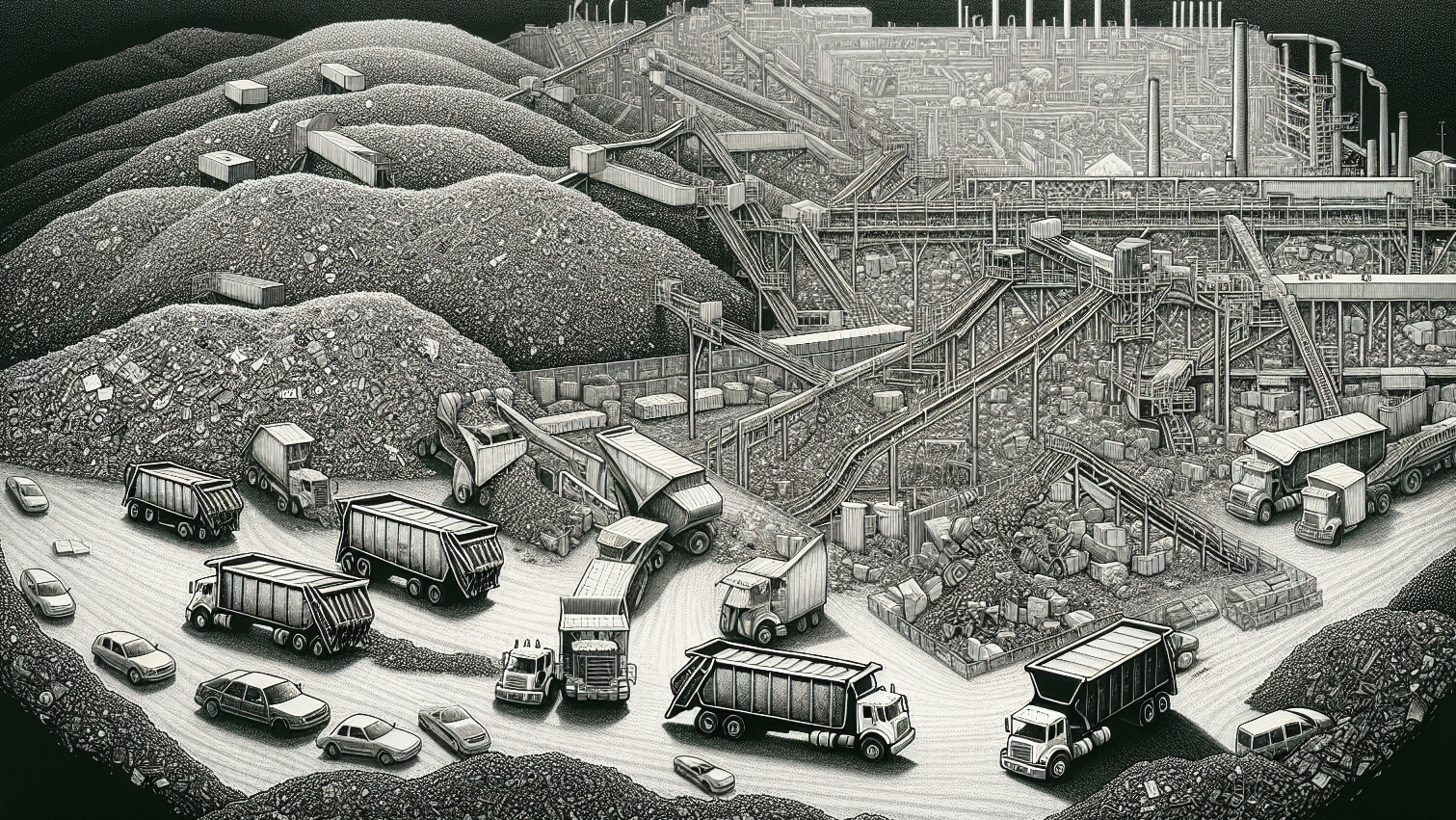How can the food industry better manage waste to benefit the environment and improve cost effectiveness? With a blend of technology, strategy, and sustainability, this article provides a comprehensive guide to food industry waste management practices that are insightful for today’s food industry professionals. Explore the innovations and methods that minimize waste, save costs, and contribute to a more circular economy.
Key Takeaways
- The food industry generates a considerable amount of waste throughout all stages of production, requiring effective management strategies.
- Technological advancements like AI and improvements in inventory management systems are pivotal in stream marks to avoid further damage to the ecosystem and promote ecological sustainability.
- Collaboration across industries and adherence to regulatory frameworks are crucial for successful waste management, with partnerships and technology facilitating the repurposing and reduction of food waste.
Exploring the Spectrum of Waste in the Food Industry

From farm to table, a troubling amount of food finds its way into the waste stream. Globally, the food processing industry is grappling with a paradox of overabundance, where surplus food feeds more trash bins than people. It’s a pressing issue that demands a strategic approach to manage properly.
Identifying Key Waste Streams
In dissecting the food waste dilemma, we uncover various waste streams. Some of the culprits in the food industry’s battle against waste include spillage, meat trimmings after processing, dairy sludge, and other residues. All of these contribute to the organic waste that’s often overlooked.
The Impact on Natural Resources
The consequences of food waste ripple out to our natural resources, contributing to greenhouse gas emissions. The energy and water squandered in producing food destined for disposal reveals a severe issue in our current waste management practices.
Harnessing Technology for Waste Reduction

As we delve deeper into the subject of waste, technology offers innovative solutions. The food industry is witnessing a digital transformation where AI and sophisticated analytics pave the way for more efficient waste management.
Optimizing Processes with AI
Artificial intelligence, with its intricate algorithms and data-crunching capabilities, is revolutionizing the way we handle food. Its scope ranges from quality control to demand forecasting, ensuring that food production aligns seamlessly with consumption patterns. By scrutinizing every step of the food supply chain, AI reduces the margin of error, slashing the volume of waste food and carving a path toward sustainable production processes.
Innovations in Inventory Management
Transitioning from AI to the more grounded realm of inventory management, we find innovations that combat overstocking and subsequent food spoilage. Systems such as Just-in-Time (JIT) and First In, First Out (FIFO) are logistical tactics that help manage food excess and ensure that food waste disposal is the last resort.
From Waste to Worth: Recycling and Recovery Methods

Through recycling and recovery methods, the remnants of meals can be reborn as biogas, biofuels, and compost. This transformation demonstrates a philosophical shift, one that views every scrap as a latent asset.
Bioconversion and Anaerobic Digestion
At the heart of this transformation lies bioconversion. Anaerobic digestion, in particular, stands out as a stellar example of this conversion, turning organic waste into a powerhouse of renewable energy. The process is a cycle where food waste is digested by microorganisms in the absence of oxygen, culminating in the production of energy-rich biogas.
Upcycling Edible Food
Upcycling is a process where edible food waste is recovered and repurposed into new, value-added products. It’s a strategy that not only addresses food waste management but also feeds innovation, as surplus food finds its way into the hands of those who can creatively convert it into nutritious food alternatives.
Sustainable Disposal Techniques

Eco-friendly waste management practices, such as composting and advanced wastewater treatment, are pivotal in ensuring that our waste disposal efforts do not exacerbate our environmental challenges. These techniques are a holistic approach to food waste disposal that prioritize the planet’s health over convenience.
Composting and Organic Recycling
Composting is a simple yet profound act of returning nutrients to the earth. By channeling food waste into composting facilities, we can diminish our reliance on landfills and the potent greenhouse gasses they emit, fostering a more harmonious relationship with our environment.
Wastewater Treatment Innovations
Revolutionary technologies like advanced oxidation processes purify water at a molecular level, ensuring the safety and sustainability of our waterways. These innovations are paradigm shifts that propel us toward a circular economy, where waste is transformed into a resource.
Regulatory Frameworks and Industry Standards
Navigating the terrain of food waste management, one encounters a maze of regulations and standards. These frameworks may differ from state to state, but the goal remains the same: to ensure that food waste contributes to sustainability rather than detracts from it.
Environmental Compliance
Environmental compliance is the compass that guides businesses through the regulatory landscape. Whether it’s landfill prohibitions or composting programs, compliance with these laws is critical in order to achieve environmental sustainability.
Collaborative Efforts and Partnerships
Collaborations between businesses, government agencies, and nonprofits forge the alliances necessary to tackle the complexities of food waste. Examples of successful collaborations, such as the Food Waste Reduction Alliance, highlight the power of collective action. These alliances bring together diverse stakeholders, from federal agencies to industry associations, united by a common goal: to reduce waste, improve food donation rates, and find productive uses for what would otherwise be lost or wasted.
Economic Advantages of Managing Food Waste

Managing food waste acts as both an environmental imperative and economic opportunity. The reduction of food waste can lead to substantial cost savings for businesses and households alike, while the transformation of by-products into new revenue streams offers a glimpse into the potential for industry expansion.
Cost Savings from Waste Reduction
The financial benefits of waste reduction are compelling. Households can see a significant decrease in their grocery bills by being more mindful of their food consumption, while businesses can revel in the cost savings that come with efficient waste management practices. Additionally, by-products from food processing provide prized materials for various industries, including animal feed, fertilizers, and biofuel. These industries are continuing to find innovative ways to utilize food waste and turn it into valuable products, creating a more sustainable and circular economy.
Summary
As we reach the conclusion of our exploration, it is clear that managing food waste is an intricate dance between technology, regulation, and innovation. The strategies we’ve uncovered offer a blueprint for a future where waste is not an inevitable by-product of food production but a resource to be harnessed.
Frequently Asked Questions
What are some key waste streams in the food industry?
Key waste streams in the food industry include spillage, residues from processing fruits and vegetables, and wastewater pollutants from various production stages.
How does AI contribute to food waste reduction?
AI contributes to food waste reduction by optimizing quality control, supply chain management, and demand prediction, which leads to improved tracking, analyzing, sorting, and grading of food products.
What are the environmental benefits of composting food waste?
Composting food waste reduces methane emissions from landfills and returns nutrients to the soil, which helps in reducing the carbon footprint of food waste disposal and promoting a more sustainable approach to organic waste management.
How do collaborations contribute to managing food waste?
Collaborations contribute to managing food waste by developing comprehensive systems, fostering innovation, improving donation rates, and finding productive uses for unavoidable waste.
What economic advantages does managing food waste offer?
Managing food waste offers economic advantages such as cost savings for households and businesses, revenue generation from by-products, and the potential to boost profitability and industry expansion.







































































